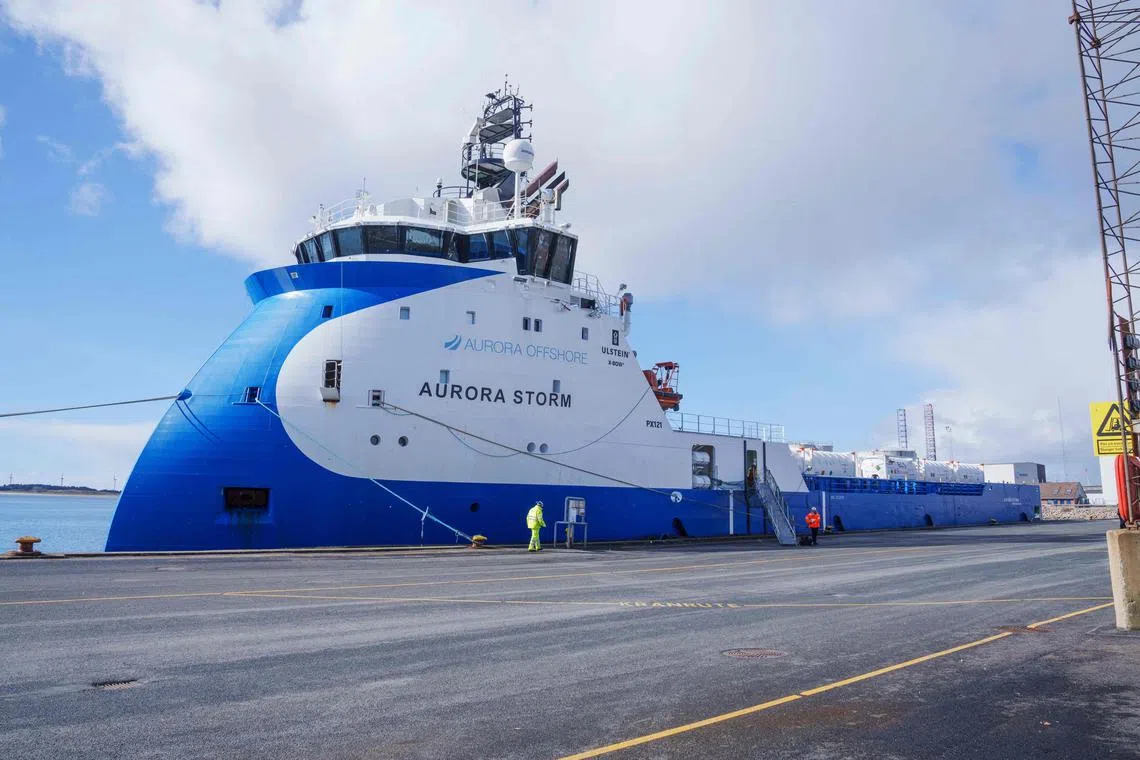Pioneering cross-border CO2 storage begins in Danish waters
Sign up now: Get ST's newsletters delivered to your inbox

The Auroa Storm supply vessel stands ready to transport captured CO2 at the port of Esbjerg on March 8, 2023.
PHOTO: AFP
COPENHAGEN - The world’s first project to store cross-border CO2 emissions has begun operations at a depleted oilfield in offshore Denmark, partners Wintershall Dea and Ineos said on Wednesday.
The Greensand project aims to inject up to 8 million tonnes of carbon dioxide (CO2) in 2030, after a demonstration stage when only small volumes will be stored.
“We are showing that it is possible to capture, transport and store CO2 safely and reliably across national borders,” said Mr Mario Mehren, chief executive of Wintershall Dea.
The energy industry has been deliberating for many years over whether carbon capture and storage is an economically viable technology.
At the same time, some climate campaigners have objected to it, saying it is a way to extend the fossil fuel status quo rather than focus on developing renewable energy.
But plans to store CO2 under the seabed have gained momentum, partly because of the urgency of addressing climate change, and partly because the rising cost of CO2 on the European Union Emissions Trading System (ETS) has strengthened the economic case.
Carbon prices on the ETS hit €100 (S$142.8) per tonne for the first time in February.
Belgium and Denmark in 2022 became the first two countries in the world to sign a bilateral agreement on cross-border CO2 transport for permanent storage offshore.
“Now we need more bilateral agreements to link emissions-intensive industries to CO2 storage sites in the North Sea,” Mr Mehren said.
Norway, which has several CO2 storage projects planned and one being implementated, also plans to sign bilateral deals for CO2 cross-border transport.
In January, Wintershall Dea asked the German government, which previously banned CO2 storage on land, to solve the legal hurdles for CO2 export.
The company has long-term plans to build up a business capturing 20-30 million tonnes of CO2 per annum by 2040, including deals with Norway, where sector peer E.ON has also forged some ties. REUTERS


